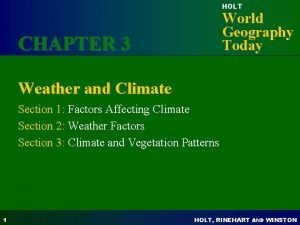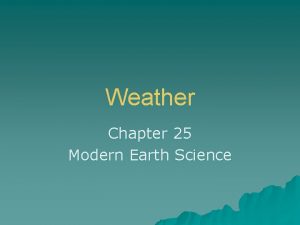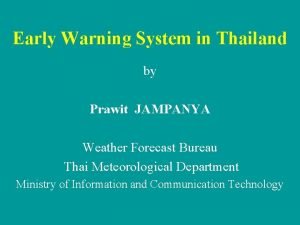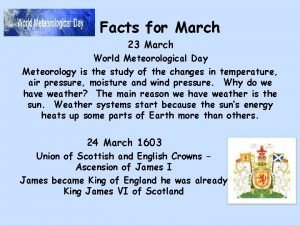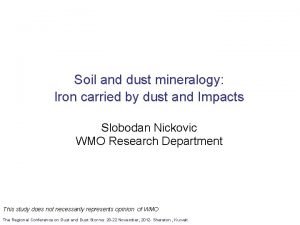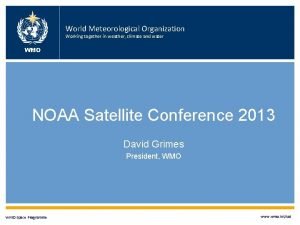World Meteorological Organization Working together in weather climate




- Slides: 4

World Meteorological Organization Working together in weather, climate and water WMO Training Needs Marine Meteorology and Oceanography Boram Lee, WDS/MMO (blee@wmo. int) www. wmo. int

Combined, Multi-step Training Programme: Virtual + Hands-on Training • COMET modules: http: //www. meted. ucar. edu (e. g. tropical cyclones, climate change, wave forecasting) • Ocean. Teacher http: //www. oceanteacher. org (e. g. archive/material from past virtual/hands-on training) • EUMETSAT Training Courses for marine forecasters http: //training. eumetsat. int (“Ocean applications”) • In-Region Workshop for operators and scientists, on in-situ observations by buoys and ocean modelling • JCOMM-TCP training workshops forecasters, on Storm Surge / Wave Forecasting • EUMETSAT/NOAA/IODE training courses on Application of satellite data for marine forecasting, for operators • Maritime Safety Services Enhancement Workshops, mainly for METAREA coordinators

Combined, Multi-step Training Programme: Virtual + Hands-on Training … addressing issues at present, using systems in-use • (near) real time database • Interactive, two-way user interface to extract information on-demand • Linkage with other database/catalogue/user portals

Training for operational forecasters: … in line with agreed regulations and standards • Regulations and Guidelines • Marine meteorological Services (WMO-No. 558, No. 471, No. 9/Vol. D) • Wave forecasting (WMO-No. 702) • Storm surge forecasting (WMO-No. 1076) • (planned) Competency requirements for marine meteorological and oceanographic services • Quality Management (QM) approach • Should include recommendations on required education and training programmes • Update/revision of the part IV of the WMO-No. 558 (Training in the Field of Marine Meteorology) • Training, Extension of system usability, and feedback for continuous improvement
